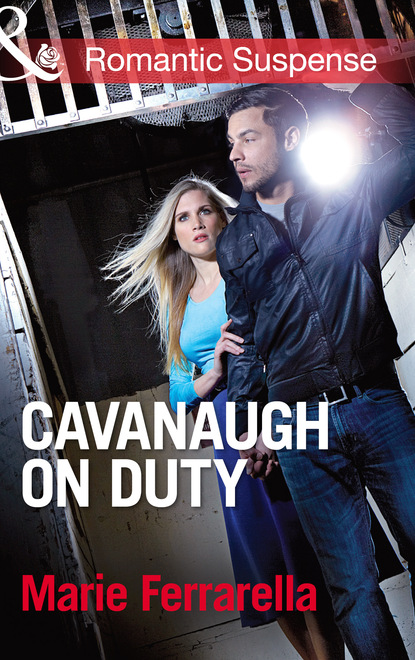
Полная версия
The Adair Affairs
She phrased her explanation about her reappearance as simply as possible. “I realized that I’d left a few pages I was going to need on my desk, so I came back for them.”
Kramer stared at her as if he was x-raying her very bones. “So you were planning on working this weekend.”
His tone was too pleasant. She didn’t trust it. “Yes, I was.”
Kramer circled her slowly, as if taking measure of her from all sides. “An attractive woman like you, staying home all weekend, working—what’s wrong with this picture?” he asked, standing in front of her again.
It was obvious that he didn’t believe her, Elizabeth thought. She was telling him the truth and the detective didn’t believe her.
Was she going to need a lawyer on top of everything else that had happened today?
She knew that if she showed the least bit of fear in the face of this interrogation, she’d be lost.
Raising her chin, she tossed her long blond hair over her shoulder and said defiantly, “Nothing, if that woman wants to get ahead in the company. It takes a great deal of hard work.”
Kramer shrugged, his loose-fitting jacket shifting on his thin shoulders. “Another way might be sleeping with the boss,” he suggested.
That might be the way you’d do it, but I wouldn’t, Elizabeth thought angrily.
For now, the response had to remain solely in her head, since saying anything remotely antagonistic out loud would be asking for trouble and far from wise.
“Mr. Adair is—was,” Elizabeth corrected herself, “a married man with a family,” she pointed out to the detective, hoping that would be the end of his condescending inference.
Even so, she couldn’t deny that she felt guilty—and perhaps even partially responsible—for Adair’s death. Maybe if she’d just stopped by earlier...
Turning, she watched the gurney being guided by the coroner’s men until it disappeared into the private elevator car.
“I should have checked on him,” she murmured to herself.
Kramer’s ears went up on high alert. “What did you say?” he asked, his eyes once more boring into her.
She wanted to shout at the man to leave her alone. Instead, she patiently explained her meaning.
“Before I left the first time, I should have checked on Mr. Adair then. He was supposed to have already left for a business trip—that’s why I came into his office in the first place. I saw the light coming from underneath his door. It should have been off and he should have been at the airport, waiting to take off,” she added mournfully.
And now he never will.
“Looks like he found another way to take off,” Kramer commented, his tone far from friendly or compassionate.
Elizabeth pitied anyone who had to work with this man. “Am I free to go?” she wanted to know. The detective made her very uneasy, not to mention the fact that she desperately wanted to get out of her bloodied clothes and into an accommodating hot shower.
“Sure,” he said magnanimously. But when she turned to leave, he qualified, “When we’re done.” His tone made her blood run cold. “I’ve still got a few more questions for you.”
The smile that slid over his thin lips was completely disembodied from anything remotely personal, warm or sincere.
“Why don’t you come down to the station with me where you can be more comfortable?” he suggested.
“Come into my parlor,” said the spider to the fly, Elizabeth thought with a sense of uneasiness. The old familiar phrase immediately ran through her head.
Who in their right mind thought that a police station was a comfortable place to spend their evening?
“If you don’t mind, why don’t we just go into my office?” Elizabeth suggested instead. “It’s right next to Mr. Adair’s.”
To show the detective how close it was, she pointed to it and then mentally crossed her fingers that he would agree to it.
The last place she wanted to go was a police station. She was tired, upset and she had a number of people to notify. Going to the police station would just needlessly use up more time.
“I do mind,” Kramer replied. His barely open eyes—like the slits of a reptile’s—looked at her for a long moment before the detective told her, “I do better on my own home turf. You understand,” he added loftily.
No, she didn’t, Elizabeth thought as she allowed herself to be escorted out of Reginald Adair’s office. She didn’t understand anything that had transpired today. Not who would have killed Mr. Adair, or why, not to mention how they could have done it without her hearing anything. She was, after all, in the next office. Could they have done it in the short amount of time she was gone from the building?
Most of all, she couldn’t understand why the police detective thought of her as a possible suspect—and he most certainly did think of her that way, judging by the look in his eyes when he was staring at her.
Aside from proximity, which might cover opportunity, the most important factor in a homicide was conspicuously missing in this particular instance.
Namely, she had absolutely no motive to kill her boss.
Adair had never been anything but kind and fair to her in the years that she had worked for him. While she knew that Reginald Adair had his flaws—who didn’t?—whenever he interacted with her, the man had never been anything but upstanding and kind.
She’d found herself admiring Adair’s work ethic and felt that AdAir Corporation was a very good place for her to work. There was an energy here, a zest that promised good things came of efforts that were put forth.
Nowhere within all that was there anything that even distantly resembled a motive.
Rather than just allow herself to be blindly herded out of the building, Elizabeth turned to the detective as they got into the elevator and demanded point-blank, “Am I a suspect?”
She tried not to dwell on the fact that they were riding down in the same private elevator that had just taken away Adair’s lifeless body.
“You catch on fast,” Kramer commented, slanting only a side glance at her.
“Why?” She wanted to know. “Why am I a suspect—other than the fact that I was the one who found the body,” she added.
Kramer nodded and what looked like a smug expression filtered over his face.
“That’ll do it,” he told her, then paused dramatically. “Do you know how many killers actually call in to report their crimes? They like inserting themselves into the crime scene. What better way to do it than to find the body and call it in? It gives them an excuse to hang around.”
“No, I have no idea how many,” Elizabeth replied, her calm voice at odds with the huge knot in her stomach. “All I know is that I’m not one of them.”
“We’ll see,” Kramer replied. Whistling, he got off the elevator, then turned and waited for her to catch up. “After you,” he said grandly, taking hold of her arm and hustling her toward his car.
This is a nightmare, Elizabeth couldn’t help thinking. And it was only getting steadily worse.
Chapter 2
An entire storm of emotions was spinning around within him at speeds that rivaled those attained by twisters and hurricanes.
If someone had asked him to describe exactly what it was that he was feeling, Whit Adair would have been forced to say, “Numb.”
He was numb.
Numb and perhaps, for the first time in his life, more than a little lost. As the vice president of AdAir Corp, as well as the oldest of Reginald Adair’s children, Whit was accustomed to being in charge and able to handle every situation he encountered.
It wasn’t something that he’d schooled himself to do, it was just something that had evolved naturally over time—because he knew that his father expected it of him and he both idolized and adored his father. He wanted to please the man. It had never occurred to him to behave in any other fashion.
Over the years, Whit had strongly nurtured the hope that someday his father would see him as a trusted asset and actually say as much. More than anything else, he’d longed to hear his father acknowledging the fact that he wasn’t just good at what he did, he was damn near excellent. He would have sold his soul in exchange for a little praise from his father.
But now that was never going to happen.
He’d been on his way to the ranch, where he spent most weekends, when the phone call came. Some detective, whose name he heard but that failed to register, said that the police were trying to locate him.
“Is something wrong, detective?” he’d asked, a strange premonition slipping over him.
“I’m afraid so, sir. Where are you? I’d like to meet in person.”
His place in San Diego was closer and he regarded it as less of a sanctuary, so he gave the detective his address. They arrived at the building almost simultaneously.
The detective looked as if he was worn out. Perhaps as a result of years of having to give unwelcome news to victim’s families, Whit thought. “I’m afraid your father’s been shot. He didn’t make it.”
Whit stared at the detective. He remembered noticing that the man had a small stain on his tie and thinking that the man’s wife—if he had one—was going to berate him for being sloppy.
Strange the thoughts that went through your head when your whole world was shaken up, Whit thought. The detective had said something about taking him to view “the body”—as if that was now his father’s new station in life; the body rather than Reginald Adair—offer to drive him. But he wanted some sort of control over the situation, so he had said he was going to drive himself. Giving him his card, the detective told him he’d lead the way, which was good because he had no idea where the morgue was.
His mind kept jumping around, going back and forth between the present and less than an hour ago.
Grief pressed against his chest like a giant lead weight.
He was never going to get the chance to bond with his father the way he’d always secretly hoped and, yes, dreamed that he would.
Someone had stolen that opportunity from him. Someone had murdered his father.
Someone was going to pay.
Whit swerved, narrowly avoiding a head-on collision with an SUV that jumped the light.
Damn it, Whit, get ahold of yourself!
For the life of him, Whit couldn’t remember getting into his car. Moreover, he couldn’t really remember the name of the detective whose card was in his pocket.
The man he was now following to the morgue.
The man who had said those awful words to him: There’s been a murder.
And just like that, his entire life was put on hold as chaos took immediate possession of his brain. Everything else in his life—the myriad of details, the pending launch of new cellular software—all of it had taken a backseat to this horrendous event.
And now he was going to the morgue to identify the man who had been found shot dead in his father’s ultramodern office.
He wasn’t sure if he was going to be able to get through it.
* * *
There was glass separating him from the lifeless form on the gurney. Glass and a white sheet.
Bracing himself, Whit nodded and the attendant—probably the medical examiner’s assistant, he assumed—gently pulled back the sheet from the deceased’s face.
He hadn’t braced himself enough.
Seeing his father like that, lifeless and so incredibly pale, was a horrible shock to his entire system.
“Yes, that’s him. That’s my father.”
His voice sounded almost disembodied to his own ear. The words echoed in his head, tormenting him, long after they had faded from the air.
“Would you like to take a moment?” the detective asked.
No, he wouldn’t like to take a moment. A moment wouldn’t help. A thousand moments wouldn’t help, Whit thought angrily. There was only one thing that would.
Turning away from the glass partition, he looked at the detective and asked, “Do you know who did this to him?”
“The investigation’s just started,” the detective replied.
“So you’ve got nothing,” Whit concluded.
“We do have a person of interest at the precinct who’s being questioned right now,” the man offered.
Whit’s blue eyes, normally so brilliant, were almost flat as he asked, “Who is it?”
“Sir, we can’t discuss an ongoing investigation,” the detective said, nervously hiding behind regulations.
Whit had been trained to detect weakness and uncertainty in any and all opponents. That had been his father’s doing. Whit could tell now that the detective was a man who could be bullied into complying—to an extent.
“You can if that investigation involved my father. Now who is being questioned?” he asked the man more forcefully.
The detective shrugged, as if conducting an internal debate with himself. “I guess you’ll find out soon enough. It’s your father’s assistant. Elizabeth Shelton.”
Whit stared at the man as if he had lost his mind. “Elizabeth Shelton?” he repeated incredulously. The one he’d taken numerous business trips with—the one who stirred his soul, although that was something he never intended to admit.
What the detective was suggesting just wasn’t possible.
The detective nodded, anticipating the next question: Why? “She was the one who found the body and called it in.”
A barrage of words rose to Whit’s tongue like a band of angry villagers storming the manor carrying pitchforks and torches, but he didn’t intend to waste his breath or his time on the detective. He needed to be elsewhere.
“Where is she being questioned?” he asked.
“At the police station. Detective Kramer is handling the case. Otis Kramer,” the other man all but shouted after Whit as the latter hurried to the elevator.
* * *
This was insane, Whit thought over and over again as he hurried to the police station. Completely insane. Elizabeth could no more have killed his father than he could. Whit gripped his steering wheel, channeling his anger, doing his best to regain control over himself. He had to put an end to this farce and get Elizabeth out of there.
He owed it to both her and his father to put an end to the interrogation that was being conducted.
That he had to come to what amounted to her rescue was, in itself, only adding to his internal turmoil.
He’d been avoiding his father’s executive assistant these last few weeks. Totally avoiding any one-on-one contact with her, avoiding even being in the same room as the woman. He had wanted to work a few things through first.
But his feelings in regard to being possibly confronted and maybe even redressed by Elizabeth were trumped by this unimaginably bizarre situation. Just because he hadn’t summoned the courage to face her didn’t excuse him from coming to her aid and extracting her from being interrogated by some overeager detective looking to make lieutenant.
Doing the speed limit and above, Whit arrived at the police station in what amounted to record time. A part of him had been expecting to be pulled over at any moment and given a speeding ticket. Luckily for him, San Diego’s finest were otherwise occupied tonight.
Parking his silver-gray sports car in the lot’s first row, Whit got out of the vehicle and dashed up the concrete front steps, then hurried into the building.
The interior of the precinct was alive with multiple activities, all going on at once. Even so, it was obvious that the murder of Reginald Adair was taking precedence over everything else.
Whit was grateful—if such a feeling could be put into play at a time like this—that the media hadn’t come crawling out of the woodwork yet. One less obstacle for him to deal with.
But they would. They would most definitely come out of the woodwork. He knew that it was just a matter of time before this whole thing became a giant media circus, three rings and all.
The desk sergeant looked up just as Whit approached him. The grumpy expression on the heavyset man’s face melted away as recognition set in. AdAir Corp—its president in particular—made large annual contributions to the policemen’s fund. That earned the company—and especially Whit—respect as well as pledges of complete cooperation should the need arise.
It had arisen.
“We were all very sorry to hear about your father, Mr. Adair,” O’Hara, the desk sergeant, told him, rising in his chair to shake his hand.
“Thank you,” Whit answered, doing his best not to snap the response out. He wanted to move on to the reason why he was here at the precinct, not discuss his father’s murder. “You’re holding my father’s assistant, Elizabeth Shelton, for questioning,” he began.
“Yeah, that’s right.” The sergeant looked up from the ledger he was checking. “Ruiz,” he called out, stopping the first uniformed policeman who walked by at that moment. “Take Mr. Adair upstairs to where Kramer’s questioning that person of interest.”
Elizabeth was a person of interest all right, Whit thought, falling into step beside the officer. A person of interest to him.
Very much so, he thought ruefully as he got into the elevator and rode up beside the diminutive Officer Ruiz. Elizabeth was a person of interest to him despite the fact that he had broken his own rules and crossed the line with her, a line he had sworn to himself that he would never cross.
And he hadn’t.
Not for five years.
Not until that night in Nevada when they’d wound up stranded thanks to an untimely thunderstorm.
Stranded, attracted to one another, with just a little too much to drink—it was a recipe for disaster. He realized that he’d been doomed right from the very start.
It had turned out to be a very volatile combination—for both of them.
Neither one of them, in his estimation, had imbibed enough to be considered drunk—but they had consumed just enough to have the carefully constructed walls around their professional relationship turn into tissue paper.
For his part, he’d been drawn to Elizabeth from the first moment he’d seen her that day she came to work for his father. He hadn’t been able to take his eyes off her.
But he more than anyone knew that business and pleasure had to be kept at arm’s length from one another. Mixing the two together was just asking for trouble—with a capital T.
But none of that had been on his mind that night in Nevada. All he’d been able to think of was how very much he wanted her.
Outside their hotel window, the wind had howled and the rain had lashed angrily against the glass panes. Inside, though, they had managed to create their own private haven. For the space of one magical night, he’d found himself coming as close to experiencing total perfection as he could ever hope.
Even so, morning had come with its heavy mantle of guilt. He had let his guard down. Moreover, he had taken advantage of the situation and of her. There was no excuse for that.
At a loss for how to handle it, he’d felt that his only recourse was to behave as if nothing had happened.
Elizabeth had done the same, which was why he was certain that refusing to acknowledge that anything had changed between them was the right way to go.
The right way...even though he ached for her with every breath he took.
But that was his problem, not hers, and Whit was resigned to spending the rest of his life dealing with that.
What he wasn’t ready to do was spend the rest of his life without the man he’d looked up to and done his very best to emulate. Sure, for the most part, sons outlived their fathers, he knew that. But he wasn’t ready for that to happen just yet.
Not like this.
Guess what? It happened. Deal with it, a voice inside his head ordered.
The stainless steel doors parted and he followed Officer Ruiz off the elevator and down the winding corridor.
The floor could have been deserted for all the attention Whit paid to what was going on all around him. He was focused on finding Elizabeth.
“Wait right here, Mr. Adair,” the officer told him. “I’ll let Detective Kramer know that you’re here about the suspect.”
Whit was not in the mood to hang back, waiting while the officer and the detective sorted things out. The turmoil within him was building up at an alarming rate, threatening to erupt at any moment unless he found some sort of an outlet. He didn’t want to wind up yelling at anyone, but containing these emotions was becoming an increasingly difficult balancing act.
“I’ll tell him myself,” Whit informed the officer, moving ahead of Ruiz and letting himself into the room that the officer was about to open up.
His back to the door, Kramer snapped, “Not yet,” thinking that he was being interrupted by one of the uniformed patrolmen.
“Yes, yet,” Whit retorted coldly as he came in. At an imposing six feet two inches, Whit took command of any room he entered. The interrogation room was no exception.
Both the detective and the young woman he had been relentlessly questioning for the past hour turned in Whit’s direction.
If there was a single point during the entire evening’s events that she could have broken down and cried, Elizabeth thought, it would have been this very moment.
The man she had been determined to avoid until she came to grips with her private situation had suddenly been cast in the role of a white knight.
Her white knight.
Elizabeth felt more conflicted than ever.
“Mr. Adair,” she cried, remembering where they were and that their relationship was supposed to be strictly business and nothing more. To her credit, she was positive that no one else even suspected that they were anything more than two people who happened to work together and, on occasion, share a car.
He deliberately kept his face expressionless. “Elizabeth, are you all right?” he asked stiffly. With what amounted to great effort, Whit successfully suppressed the desire to sweep her into his arms and seek solace in hers.
She didn’t answer his question. Instead, because she wasn’t sure what he’d been told, she said, “Your father’s gone. I am so sorry.”
He wasn’t about to respond to that or even react to it. He couldn’t, not without breaking apart, and an Adair had to always remember to save face at all costs. So instead, he turned to the detective, his anger barely under control.
“What is Ms. Shelton doing here?” he demanded.
Obviously stunned at being challenged, Kramer was caught off guard.
“We had some questions,” he began.
“So you decided to ask them in your interrogation room?” Whit wanted to know, his tone clearly indicating that the course Kramer had taken was completely unacceptable.
“I didn’t want her distracted,” Kramer answered coolly. After fifteen years, the detective felt he knew how to play the game.
It was a weak excuse at best and a lie at worst. Whit’s brilliant blue eyes narrowed as he pinned the detective in place.
“Is Ms. Shelton being placed under arrest?” he wanted to know.
“No, but—” Kramer’s voice cracked slightly at the obvious confrontation. He hadn’t expected it to come from the family.
“Then if she’s not under arrest, she’s coming with me,” Whit informed the detective. “Anyone with eyes can see that the woman’s in shock, not to mention that she’s in desperate need of a change of clothes.”
“They offered me some sweat clothes,” Elizabeth interjected, desperately struggling to keep from breaking down. “I think one of the officers just went to get them.”
The information had no effect on Whit. “They shouldn’t have brought you here in the first place,” he said tersely, his eyes never leaving the detective’s face.
Kramer had no use for people of privilege who believed themselves to be above the law and allowed to do as they pleased.
“I’m not finished questioning her,” Kramer informed Whit.
Whit was not about to back off. He wanted to get Elizabeth out of here. He had questions of his own he wanted to ask her, but first she needed to get away from the interrogation room.












